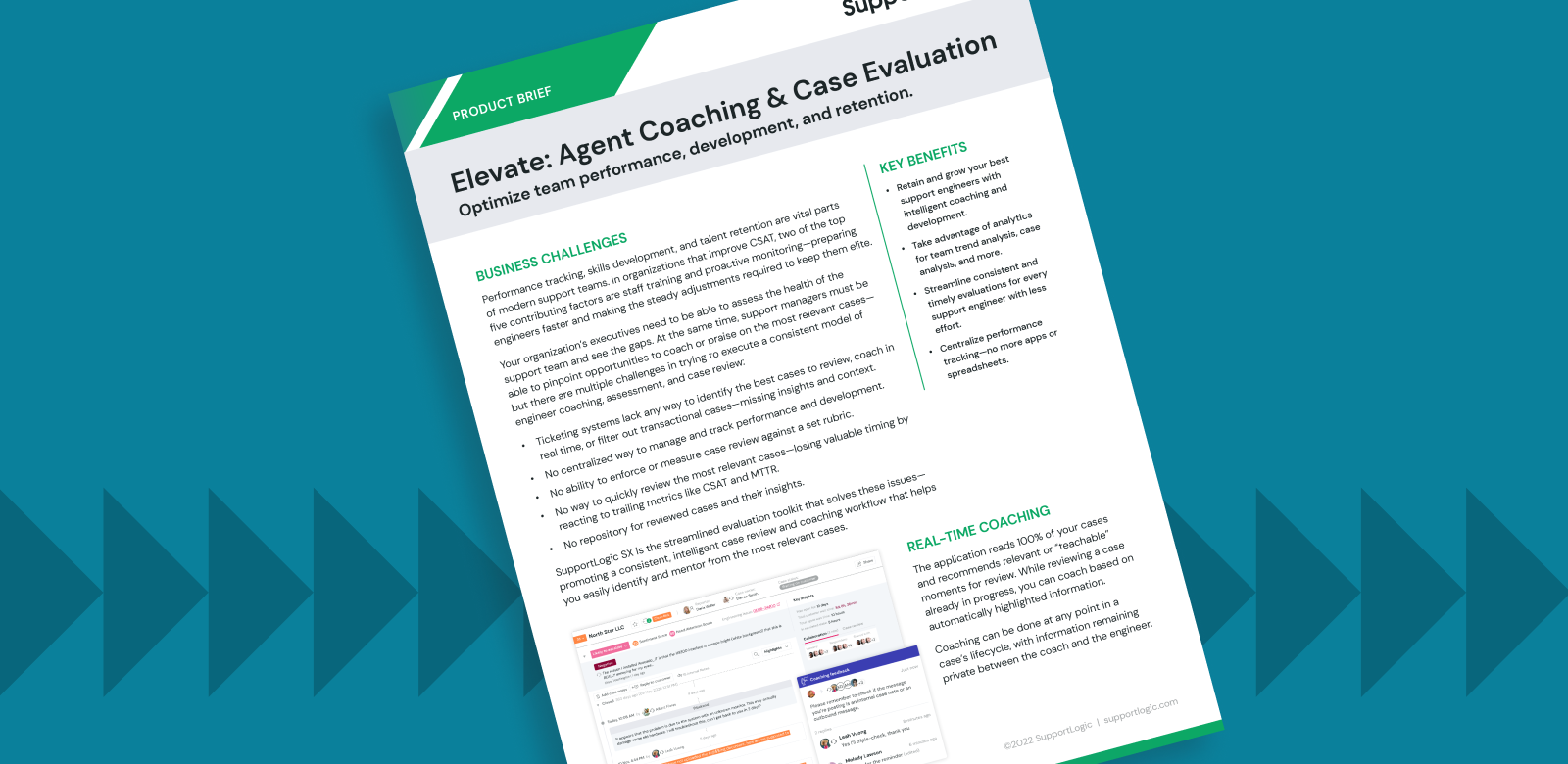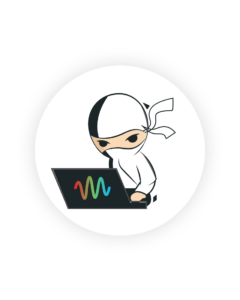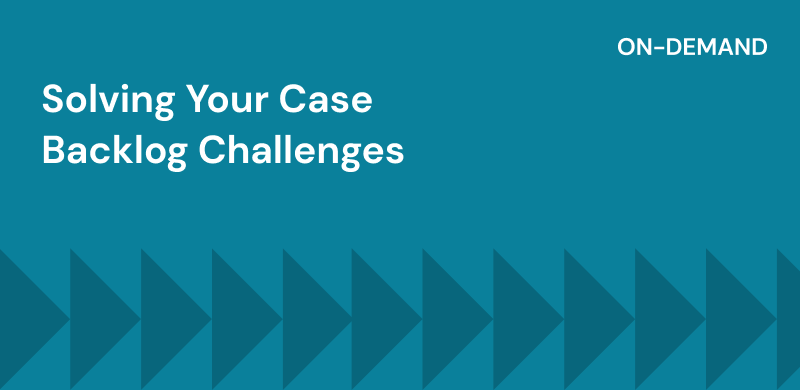
Jan 14, 2021
No More Round Robins: Introducing Intelligent Case Assignment
agent skillsIntelligent Case Assignmentnext gen support
Your customers expect cases to be solved efficiently, effectively and with finesse, by an experienced engineer who groks the problem, knows the field, understands their company’s problems, and is capable of handling the inherent frustration that goes along with tackling knotty technical issues. The classic round robin (or first-come-first-serve) style of distributing case loads across a support engineering team falls short on all these aspects.
On the other side of these cases lies a support engineer who could benefit from feeling equipped to solve the problem, finding the right support team members to collaborate on cases with, and build competence and technical mastery across a variety of skills over time. Additionally, support engineers must be available to take on a case, as well as have the bandwidth to do so with a manageable backlog.
Putting on our technical hats, some of the key factors that traditional case assignment fails to account for include support engineer skills and relationships with their customers, the severity and relative priority of the case, the complexity of the case, the availability of the engineering team, and so on. In addition, cases with longer lifespans or those that need round-the-clock support often need to be handed off across time zones or reassigned to another engineer. At best, these factors are implicitly captured by the team manager’s mental models and are not easily transferable to a “best practices” framework.
In this blogpost I’ll talk about how we at SupportLogic have approached the complex problem of case assignment, through our patent-pending intelligent recommender system with underlying machine learning models that surface support engineers best suited for a given case. Next, I’ll discuss how for an ongoing case, the system recommends support engineers for hand-offs and reassignments, as well as surfaces other support team members that can come together to collaborate, leveraging their collective expertise. Finally, I’ll describe how our system is designed to incorporate user feedback, both implicit and explicit, in a continual learning fashion to adapt to our users’ changing goals.
How it works
Using a variety of machine learning models and natural language processing, our system looks at historical support case data to capture and encapsulate various aspects of an agent’s case history, such as their technical skills, their prior experience with an account and with specific individuals with an account, their ability to handle complicated cases, and so on.
Next, the system recognizes the fact that the engineers best suited to tackle a case might be busy (or the case might have been opened outside of their regular work hours or during their time off work). It is also likely that the engineer might be swamped with work and have very little bandwidth to take on an additional case.
To tackle such scenarios, the system accounts for engineer availability, work hours (we provide calendar integrations in our UI as an option) and generates case backlog scores, based not just on the total tickets being tackled but by quantifying the degree of support involvement these cases require and how close they are to being resolved.
For a new case, the system imputes the required skills, extracts account and individual requester information, projects the potential complexity of the case, and then scores, ranks and finally recommends those engineers who are best suited to tackle such a case, accounting for availability, caseload and so on.
Our system shows an overall unweighted score across various aspects of the case. However, we recognize that business rules vary for our customers, which is why they can configure the weights to reorder the list of recommended engineers and emphasize the ones that make the most sense to their team, or to a certain subset of cases.
Case handoffs, reassignments, and swarming
“Great things in business are never done by one person.” – Steve Jobs
Assigning an incoming case to the most appropriate support engineer is a good start, but there are some high-priority cases that require 24×7 support. For such cases, our system allows for case handoffs, by picking engineers in other time zones who are best equipped to continue handling a case.
Sometimes, an assigned engineer may become unavailable (this could happen for a variety of reasons, both professional and personal) – in such situations, their cases will need to be reassigned. Our system handles reassignments by recommending other engineers who are equally qualified to handle such cases.
Swarming is the idea that a case can be quickly tackled by multiple engineers collaborating closely with each other and leveraging each other’s expertise to solve technically complex problems. Our system can facilitate this mode of working by surfacing those engineers who have worked on similar cases in the past and are recommended for the case, but have not been assigned the case. In such a situation, backlog/availability can be given less importance to, instead focusing on skills and experience with a given account, since this work style requires knowledge sharing from other engineers, without direct case ownership. Apart from involving support engineers, our system enables the involvement of other personas in the case, such as the team manager, the account manager, or the relevant sales representative.
Feedback, reactivity and a continuously learning intelligent system
“Intelligence is the ability to adapt to change.” – Stephen Hawking
Our system has been designed to assimilate user feedback and be fine-tuned to the support team’s requirements over time. User feedback can be either implicit or explicit. Implicit feedback is derived from user actions when interacting with the system, for example, changing the default sort order when looking at a list of recommended engineers for a case. Explicit feedback is when a customer wants to inform the system of new information that is not yet encoded, such as new skills that an engineer might want to add to their repertoire.
Broadly speaking, since our Intelligent Case Assignment system is built around a recommender system, it is susceptible to the “cold start problem”, i.e. the issue of not being able to glean enough information to make really fine-tuned recommendations, in our case about particular engineers (especially new hires to the team). We tackle this issue by incorporating an explicit feedback mechanism, wherein our users can provide information such as an engineer being recommended too many times, or to consider another engineer even if we haven’t inferred that they have the required skills (due to their sparse history within the system).
The system retrains itself on a periodic basis, digesting and learning from new volumes of cases, taking implicit feedback to re-weight recommendations by sorting on our users’ favored factors, augmenting our analyses with explicit information provided by our users around cases, engineers, and their customers. As the system cycles through these learning modes, it starts to undergo a transformation, reactively adapting to our users’ needs and becoming progressively better at recommending and assigning cases to engineers, reassigning cases when required, and surfacing key members as collaborators to expediently resolve challenging customer problems.
The end result is a happy support team, a happy customer, and a bunch of happy SupportLogicians.
Learn more about SupportLogic Intelligent Case Assignment and request a demo today.
Don’t miss out
Want the latest B2B Support, AI and ML blogs delivered straight to your inbox?




![22.05-NA-NEWS-5-things-we-learned-from-SX-Live[1]](https://www.supportlogic.com/wp-content/uploads/2022/05/22.05-NA-NEWS-5-things-we-learned-from-SX-Live1.png)
